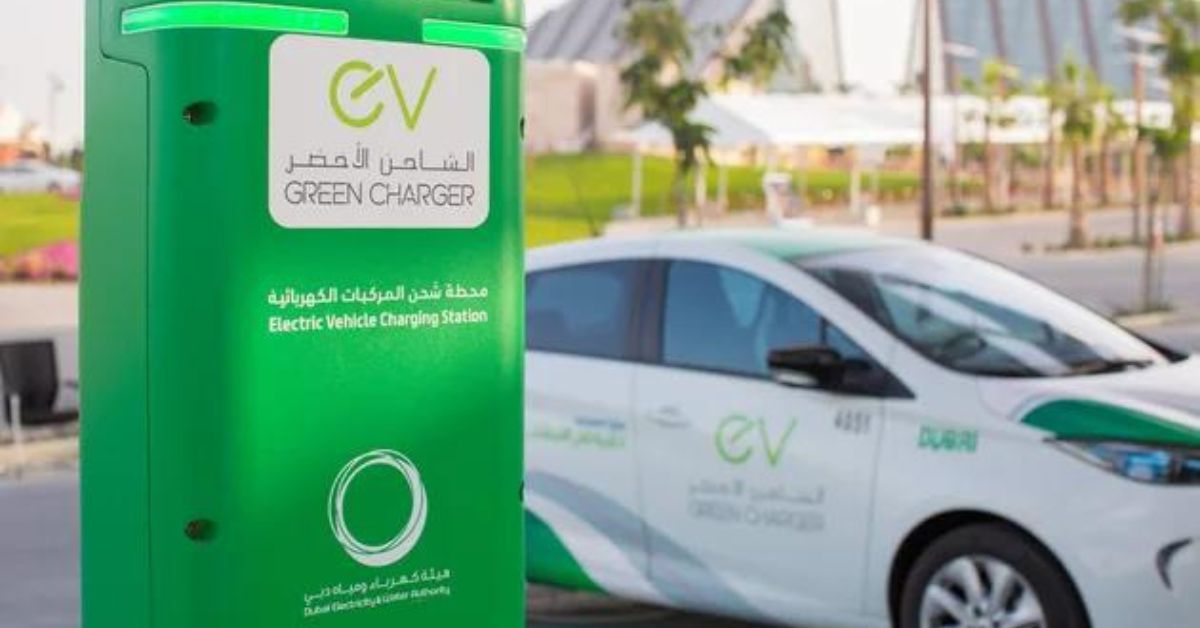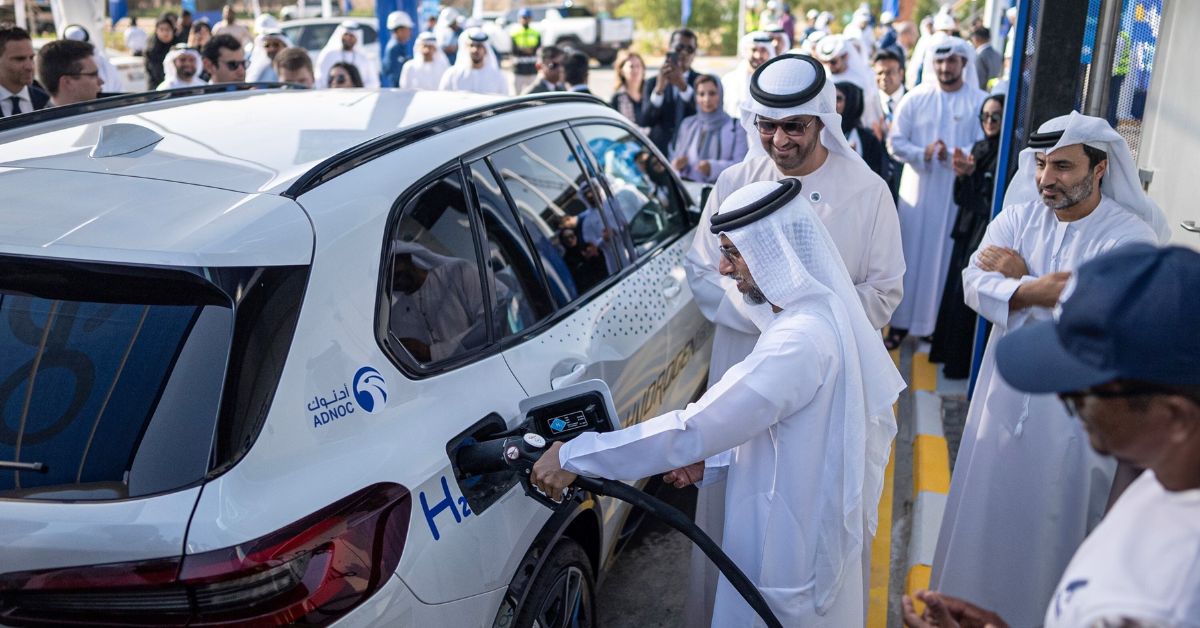DUBAI — The GCC, traditionally synonymous with vast oil reserves, is now leading a paradigm shift toward sustainable mobility. The recent BMW Group Dialogues in Dubai highlighted the region’s commitment to leveraging its petrochemical value chain expertise to develop green mobility energies, primarily hydrogen.
As the world confronts climate change challenges, MENA nations are strategically positioning themselves to play a pivotal role in the global transition toward sustainable energy and transportation.
Government initiatives in the region
The MENA countries are actively pursuing ambitious national strategies to foster the transition to sustainable energy and mobility.
For example, the UAE has outlined its National Hydrogen Strategy, aiming to produce 1.4 million tons of hydrogen annually by 2031, with an impressive increase to 15 million tons by 2050.
At A Glance * GCC leads a shift toward sustainable mobility, focusing on hydrogen energy. * BMW Group Dialogues in Dubai emphasized green mobility and hydrogen's role. * MENA nations adopt strategies for clean energy and sustainable transportation. * UAE aims for substantial hydrogen production by 2050 as per its National Strategy. * Saudi Arabia and Oman invest heavily in green hydrogen production facilities. * Qatar and Jordan focus on solar power and green hydrogen for energy needs. * Electric Vehicles (EVs) and Hydrogen Fuel Cell Vehicles (FCEVs) seen as key to reducing emissions.
In Saudi Arabia, a $8.4 billion green hydrogen production plant is set to be completed by 2026, demonstrating the nation’s commitment to clean energy.
Oman plans to become the world’s sixth-largest exporter of hydrogen, with construction of the largest green hydrogen plant beginning in 2028.
Qatar’s National Vision 2030 emphasizes transitioning to a sustainable and self-sufficient economy, targeting a 20 percent share of electricity from solar power by 2030.
Meanwhile, Jordan is investing in renewable energy sources, like solar and green hydrogen, to achieve 31 percent of power generation from renewables by 2030. These initiatives underscore the GCC governments’ commitment to embracing sustainable practices and positioning themselves as global leaders in the energy transition.
Sustainable mobility: A global imperative
The transportation sector significantly contributes to global carbon emissions, with road vehicles alone responsible for 75 percent of all transport-related emissions. Sustainable mobility extends beyond a vehicle’s operational life, considering factors such as raw material sourcing, manufacturing, and end-of-life recyclability.
The BMW Group Dialogues in 2023 centered on the critical role of sustainable mobility in achieving broader environmental goals. Electric Vehicles (EVs) have emerged as a promising solution to reduce emissions, yet challenges remain.
Producing lithium-ion batteries, essential for EVs, involves energy-intensive processes and raises ethical issues related to raw material extraction. Furthermore, the disposal of EV batteries at the end of their life poses environmental risks. The BMW Group is tackling these challenges through technological innovation, aiming to increase the use of secondary materials in vehicles from 30% to 50% by 2030.
The BMW iX, powered by the latest Gen5 batteries, exemplifies a commitment to sustainable practices. The upcoming Gen6 battery cell technology, set for release in 2025, seeks to enhance energy density and reduce costs, making batteries more eco-friendly. The iX5 Hydrogen, unveiled in 2023, represents a significant step in fuel cell electric vehicles (FCEVs), offering a clean alternative with water vapor as the only direct emission.
Hydrogen mobility: A complementary solution
Hydrogen is often touted as a complementary solution to EVs, potentially playing a key role in sustainable transportation. Green hydrogen, produced using renewable energy sources, is the most environmentally friendly option.
However, challenges like high-pressure storage and transportation, along with the need for dedicated refueling infrastructure, must be overcome for widespread adoption.
The BMW iX5 Hydrogen, introduced in 2023, demonstrates the potential of FCEVs. The BMW Group’s participation in launching the region’s first high-speed green hydrogen refueling station in Masdar City underscores a commitment to developing the infrastructure for hydrogen mobility.
Business and public will: A symbiotic relationship
A recurring theme in the BMW Group Dialogues was the symbiotic relationship between corporate leadership and public and political support. Stakeholders emphasized the importance of corporate initiatives in garnering critical support for sustainability goals.
The challenge lies in aligning top-down decisions with grassroots engagement, highlighting the importance of political will in achieving regional climate targets before 2050.
To foster sustainable practices, governments must make the decarbonization of the mobility sector a priority in their political agendas. Policymakers should collaborate with the private sector to develop advanced charging infrastructure, addressing concerns like range anxiety and recharge times that hinder the widespread adoption of sustainable mobility options.
Overcoming economic barriers
Making sustainability accessible to all demographics remains a crucial goal. Sustainable alternatives, often costlier to produce, require incentives for development and adoption.
Policymakers must strive to create an economic environment that encourages the affordability of green products. In the realm of sustainable aluminum production, EGA’s CelestiAL Aluminum, powered by solar energy, exemplifies a circular approach to reducing emissions in the manufacturing process.

Dubai’s COP28: Pioneering sustainable mobility
As the host city for the 28th Conference of the Parties (COP28), Dubai had taken significant steps toward showcasing sustainable mobility as a key component of its climate change strategy. Held in the UAE’s arid landscapes, the conference offered Dubai a unique platform to address environmental challenges and demonstrate its leadership in fostering a sustainable future.
A highlight of Dubai’s COP28 was the integration of sustainable mobility solutions into the event’s framework. Embracing the conference theme, the city aligned its transportation infrastructure with eco-friendly alternatives. The use of fully electric vehicles, provided by the VIP e-mobility partner BMW Group, underscored Dubai’s commitment to reducing carbon emissions.
The emphasis on sustainable mobility at COP28 extended beyond the official transportation fleet. Dubai aimed to set a precedent for attendees and the global audience by promoting public transport, shared mobility solutions, and eco-friendly modes of travel throughout the city. This multimodal approach aimed to reduce the carbon footprint associated with individual commuting and highlighted the city’s dedication to creating a holistic and sustainable urban mobility ecosystem.
Dubai used COP28 as a platform to demonstrate how sustainability can be seamlessly integrated into the fabric of a global event. By prioritizing sustainable mobility solutions, the city conveyed a powerful message to participants and the international community about the urgency of collective action to combat climate change. Dubai’s COP28 stands as a testament to the transformative power of sustainable mobility in shaping a more resilient and environmentally conscious future.








